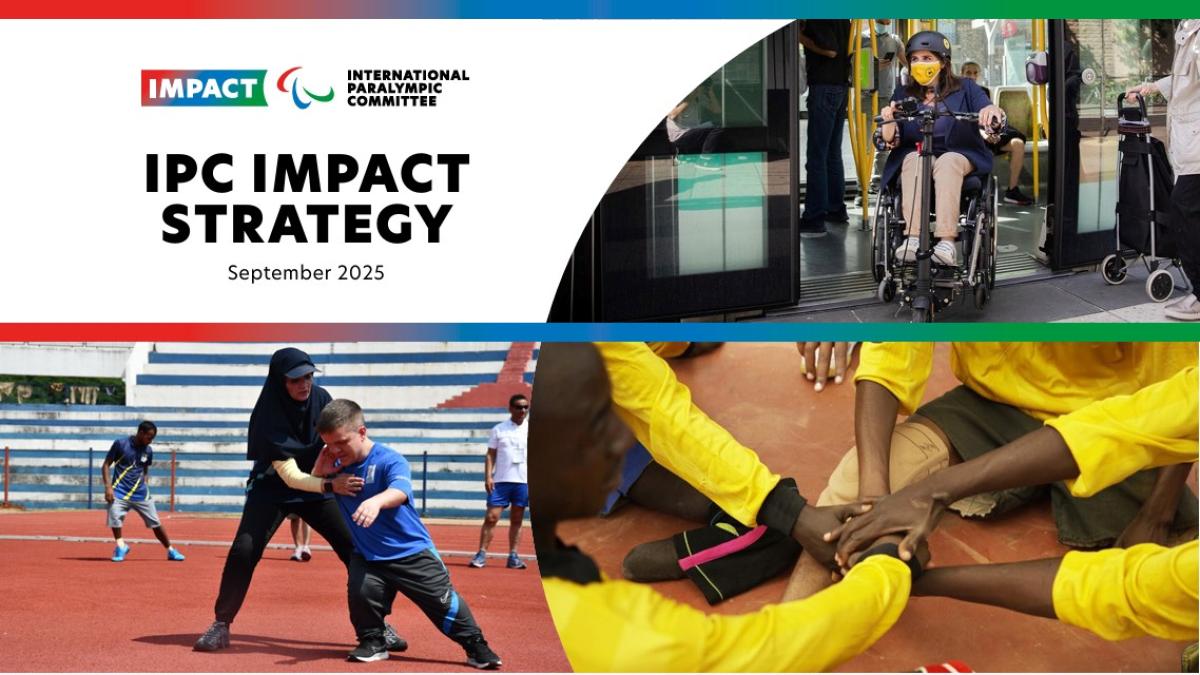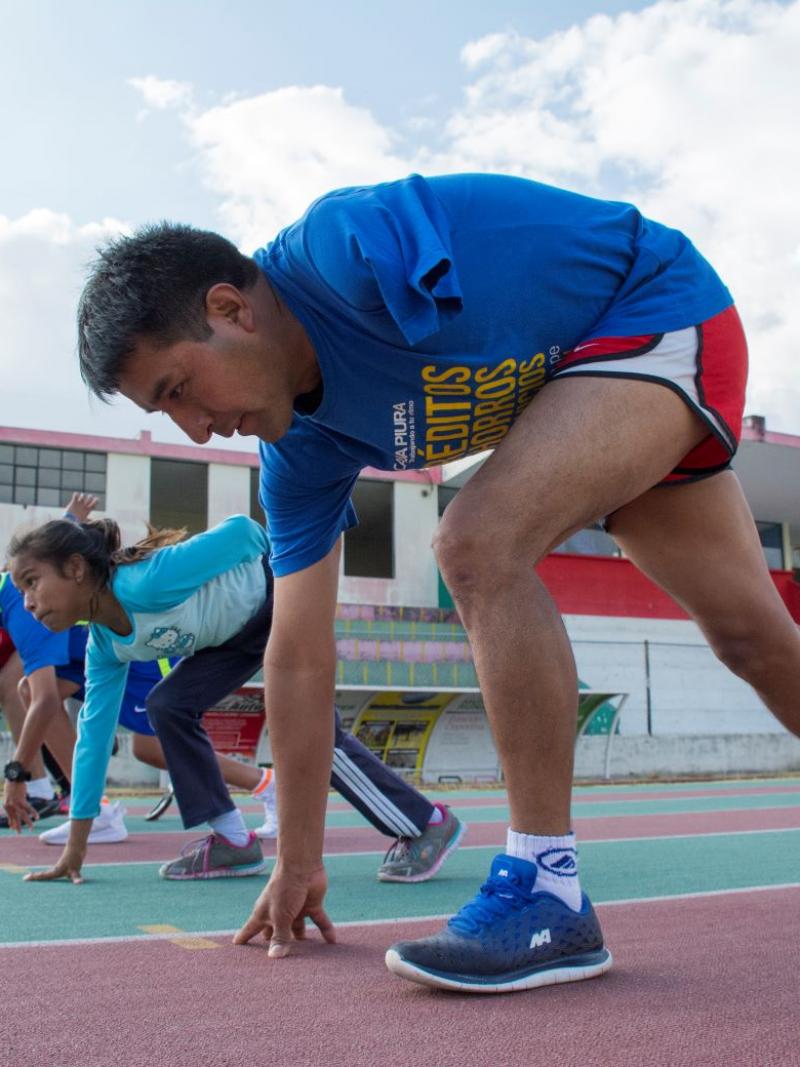IPC launches new impact strategy to drive global disability inclusion
The International Paralympic Committee (IPC) Impact Strategy focuses on four interconnected impact areas that seek to address inequalities faced by the world’s 1.3 billion persons with disabilities (over 15 per cent of the global population) 24 Sep 2025
The International Paralympic Committee (IPC) launched its first-ever Impact Strategy on Wednesday (24 September), a landmark publication that aims to better demonstrate how Para sport is a powerful driver of societal change and global disability inclusion. Alongside this document, the IPC also published the IPC Impact Insights Catalogue which highlights global data and best practice from within the Paralympic Movement.
Unveiled following a year of consultation with stakeholders, the IPC Impact Strategy marks a pivotal moment in the IPC’s evolution. While the IPC remains a sports organisation at its core, the Impact Strategy reaffirms its role as a global leader in advancing disability inclusion. By being able to better measure and demonstrate the global impact of its activities and services, the IPC hopes to further support its 210 plus member organisations and the Para athletes they serve.
The IPC Impact Strategy focuses on four interconnected impact areas that seek to address inequalities faced by the world’s 1.3 billion persons with disabilities (over 15 per cent of the global population):
Para Sport for development – increase opportunities for persons with disabilities to engage in Para sport and physical activity at all levels and in all contexts.
Paralympic Games legacy – deliver transformational Paralympic Games as a global platform to showcase sporting excellence, challenge stigma, and promote disability inclusion, leaving legacies in the host city and beyond.
Partnership and global advocacy – develop strategic partnerships that enhance global advocacy for disability inclusion, promote and support implementation of policy change, and drive investment in Para sport.
Empirical evidence base – improve data collection, analysis and research of Para sport and physical activity, and advance advocacy for better data infrastructure to credibly showcase the impact and effects of the IPC and Paralympic Movement.
Kristina Molloy, the IPC’s Deputy Chief Executive Officer, said: “Without doubt, Para sport is an extremely powerful tool for driving societal change and advancing disability inclusion. The launch of the IPC Impact Strategy marks a major milestone in the Paralympic Movement’s history.
“Whether it is the platform of the Paralympic Games or Para sport development programmes, our activities have a monumental impact, challenging stigma, empowering individuals, and building inclusive communities.
“To truly deliver on the IPC’s vision to make for an inclusive world through Para sport, we need to articulate and expand on the impact we have in advancing social change, which is where the IPC Impact Strategy comes in.
“Be being able to better measure and demonstrate the impact of the IPC’s activities, we will be able to further support our members and athletes. By partnering with like-minded organisations and institutions, the IPC will advocate for and work towards focusing global attention on systemic changes required for disability inclusion.”
Dr Mike Peters PLY, IPC Chief Executive Officer, said: “The IPC is a sports organisation first and foremost; Para sport is what we do. At the same time, our work in Para sport is grounded in the social movement of disability rights. This social movement requires us all to lean in and contribute, not only because we understand the strength of difference, but because we know that the finish line can be realised only once we live in an equitable world.
“The Impact Strategy will explain what impact means to the IPC, bring members and stakeholders together around this shared purpose, and ultimately provide evidence of the power of Para sport to change communities, nations and societies. In addition, the IPC Impact Insights Catalogue will serve as a tremendous resource showcasing the great work of our members and other organisations, as well as bringing together in one place a whole host of data that our members will find useful.”
To coincide with the publication of the IPC Impact Strategy, the IPC has also published the IPC Impact Insights Catalogue thanks to significant input from IPC members. This document brings together in one place a comprehensive range of data, research, case studies and best practice relating to disability, the benefits of Para sport and physical activity, and the societal legacies of the Paralympic Games. It is hoped the document will highlight the great work being done by IPC members and be a valuable resource in advancing their own Para sport programmes and disability inclusion activities.
The IPC has also launched specific online channels dedicated to impact. The website www.paralympic.org/impact provides further details about the four key focus areas of the IPC Impact Strategy and details the wide-range of programmes and services that the IPC offers and provides to its member organisations.






